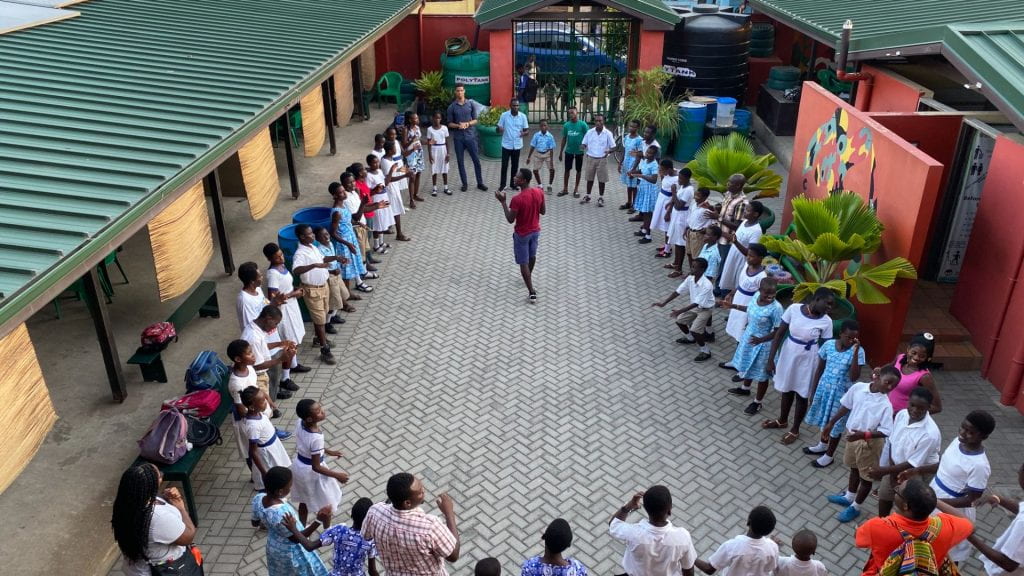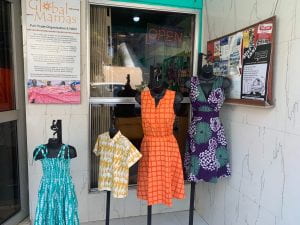
Known for its long-lasting, mostly stable democracy, Ghana has long been considered a “donor darling” in sub-Saharan Africa. Since the mid-1980s, international donors and foreign governments have generously supported civil society organizations (CSOs) in the country. This has led to a robust civil society sector with a large number of organizations focused on everything from direct service provision to advocacy. For example, between 2012 and 2020, the number of registered CSOs nearly doubled from approximately 5,700 to 10,030 (USAID). However, the sector is also heavily reliant on foreign funders, with approximately 70 to 90 percent of Ghanaian CSO funding from international sources.
This heavy investment from international donors was upended in 2010 when the World Bank re-classified Ghana as a lower-middle income country. In response, several international funders indicated that they would reduce financial outlays in Ghana in order to divert those funds to countries with greater need. Indeed, Official Development Assistance (ODA) to Ghana fell from approximately $1.8 billion in 2011 to approximately $900 million in 2019. While there was a surge of aid in 2020 in response to the COVID-19 pandemic, the increase was temporary. By 2021, aid was once again on the decline, nearing 2018 levels at about $1.2 billion.
Several government proclamations have further complicated the funding environment. The most recent of these, “Ghana Beyond Aid” (released April 2019) declared Ghana’s intention to be “aid-free” sometime in the near future. Although the charter is ostensibly designed to motivate the Ghanaian government to provide for its needs with minimal support from external sources, the document has caused confusion among international donors and CSOs operating in Ghana. Our research found that many CSO leaders viewed “Ghana Beyond Aid” as political propaganda, but were still concerned that these types of aspirational proclamations would cause foreign donors to further reduce aid—aid that the government does not have the capacity to replace.
Additionally, the giving environment in Ghana is not conducive to Western-style philanthropy, that is donations from individuals to nonprofit organizations. There is a lack of systemic support for philanthropy. For example, Ghana does not provide a tax incentive for donating to CSOs. Also, while Ghanaians are generous people, that generosity tends to flow horizontally between friends and family members. There is not a strong tradition of donating vertically to CSOs. This informal style of giving may favor grassroots organizations, where individuals can trade on personal connections to access donations. However, due to its history as a “donor darling,” many Ghanaian CSOs are highly professionalized and reliant on the Western model of philanthropy to operate.
The reduction in foreign aid, coupled with the confusion caused by the government’s proclamations, and the informal giving tradition in Ghana has impacted the financial sustainability of many CSOs in the country.
In October 2019 I, along with my colleague Kara Newby, conducted field research in Accra and Cape Coast, Ghana. While in Ghana, we met with several CSO leaders to discuss the financial sustainability issues facing the sector. From these interviews, we crafted an anonymous online survey that measured the financial sustainability efforts of CSOs in Ghana. Our results lead us to raise an alarm for the sustainability of the sector.
Previous research indicates multiple approaches being taken to increase financial sustainability in Ghana. These approaches include diversifying income streams, reducing overhead and staff, collaborating with other CSOs in both advocacy and grant applications, and improving the visibility and credibility of the sector through marketing and greater accountability. This research was based primarily on in-person interviews with key informants. Our findings contradict the practices observed in prior research.

Our anonymous, online survey of 42 registered CSOs showed that all of the organizations that were working towards financial sustainability were focused on diversifying their income streams, almost exclusively through the development of social enterprises. Only four respondents mentioned any other strategies: two of them mentioned working with other CSOs to apply for grants and another two mentioned improving the credibility of the sector.
We believe that the discrepancy between our findings and the previous literature highlights the differences between theory and practice. While CSO leaders often communicate during in-person interviews what they know should be their approach to financial sustainability, the anonymous online survey reflects what their actual approach is. Our research indicates that the “social entrepreneurship craze” trumps all other strategies for addressing financial sustainability in a changing funding landscape.
This overemphasis on social enterprises is alarming. While generating revenue can free CSOs from the priorities of international donors, it places them at the mercy of the market. It also opens up CSOs to mission drift. For organizations that can monetize their mission, the fees they charge for their goods or services can exclude the individuals they were originally chartered to serve. For those organizations that cannot monetize their missions, the need to generate unrelated income can distract from their missions.
Our findings lead us to several recommendations for researchers and practitioners. As researchers, we must differentiate between grassroots and professionalized CSOs. Pamala Wiepking, the Stead Family Chair in International Philanthropy at the Lilly Family School of Philanthropy, pointed out in a recent paper that in many countries—particularly across the Global South—our Western conception of philanthropy is an inadequate measure of giving. Generosity is a more appropriate term, and it applies in the Ghanaian case. Therefore, when researchers are examining generosity and giving, they must identify if the organization they are learning from is an informal, grassroots organization or a Westernized, professionalized organization.
While grassroots organizations often struggle to gain grant funding due to a lack of capacity, their close relationships with the communities they serve could shield them from declining foreign aid. These organizations are also more likely to use strategies like shifting from paid staff to volunteers, as the people working with the organization are often personally tied to the mission of the organization. Given this, researchers must be careful to differentiate between these organizations and more formal organizations when examining the threats to and opportunities for building financial sustainability.
For CSO practitioners navigating a changing funding environment, particularly those in professionalized organizations, care must be taken in the approach to financial sustainability. Trading grant dollars for income generation does not address the core concerns around sustainability. Applying theory to practice by actually utilizing various approaches to diversify funding sources and improving the overall funding climate through advocacy and collaboration is the key to financial sustainability. Social enterprises are not the only solution to the challenge of financial sustainability, and great care must be taken when deploying this strategy to avoid mission drift.

Noemí Oeding is a Ph.D. Candidate in Auburn University’s Department of Political Science. Her research focuses on how nonprofit organizations adapt to change. She is specifically interested in the financial sustainability of nonprofit organizations.
Learn more about her research and work at NoemiOeding.com, or reach out to her at NoemiOeding@auburn.edu.
The views and opinions expressed in this article are those of the author and do not necessarily reflect the official views of the IU Lilly Family School of Philanthropy.

Leave a Reply